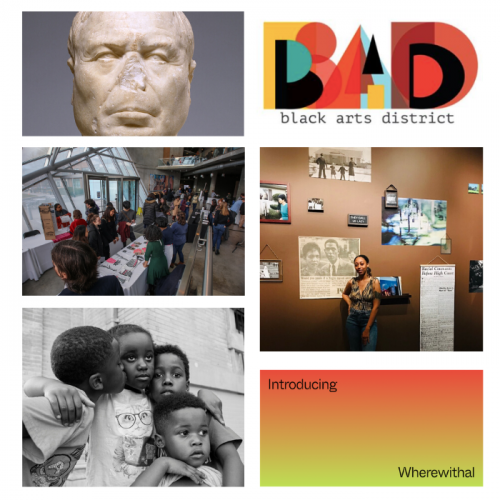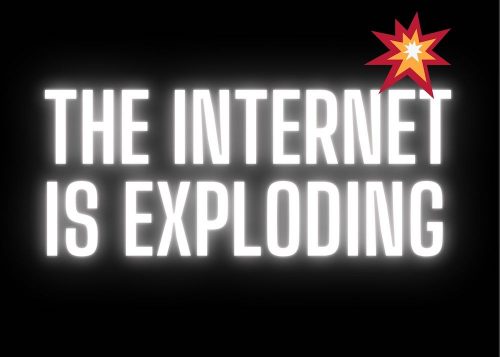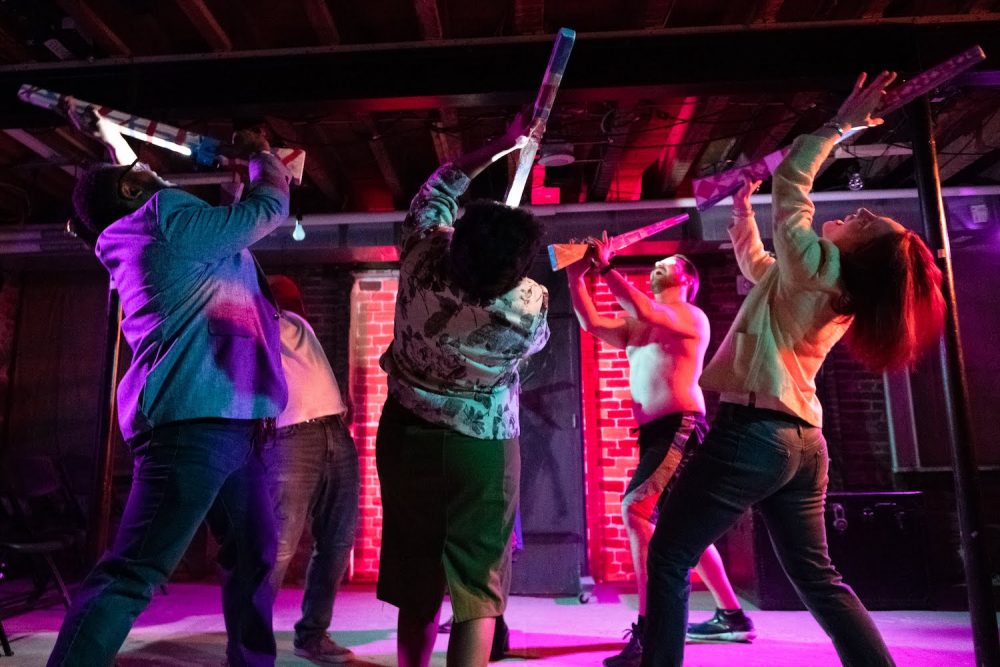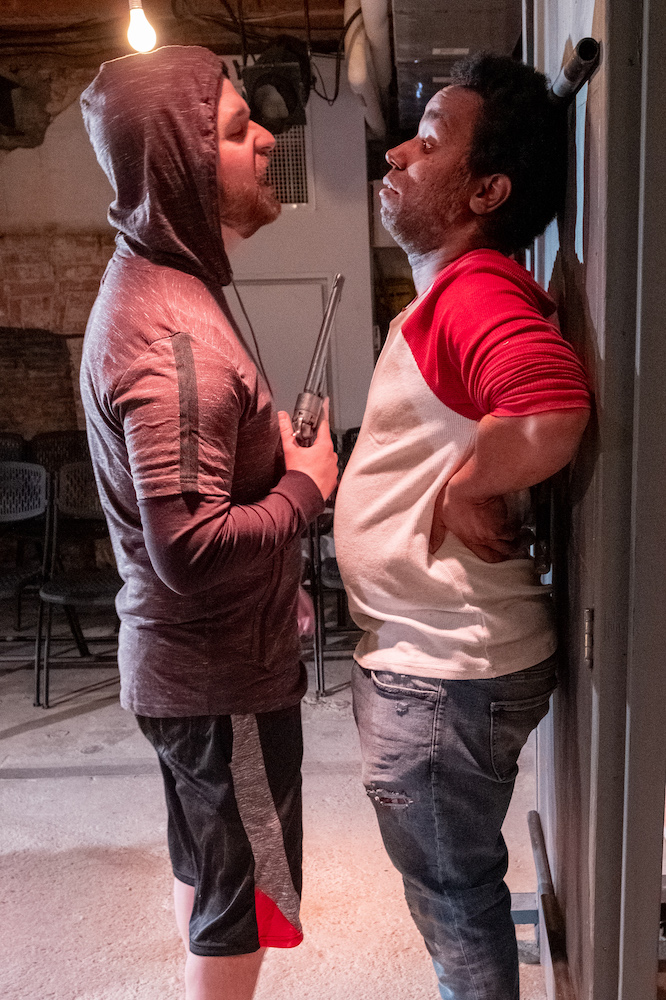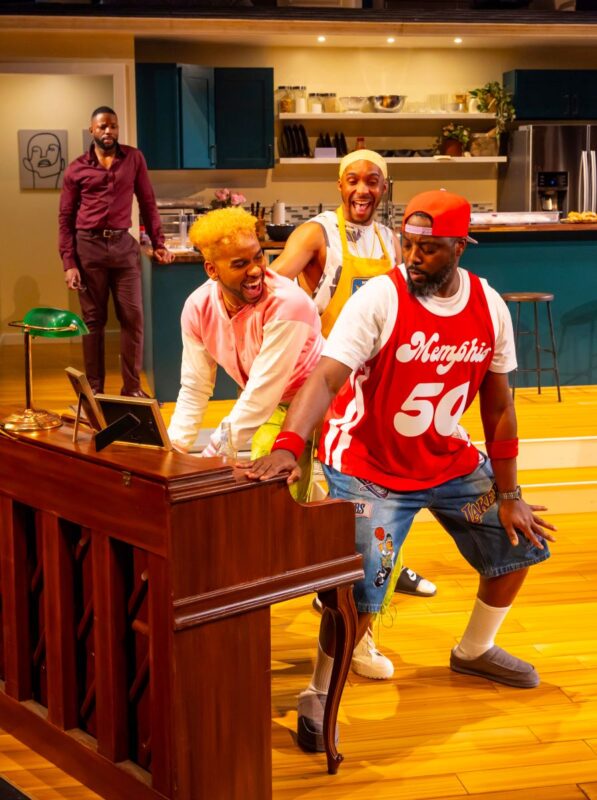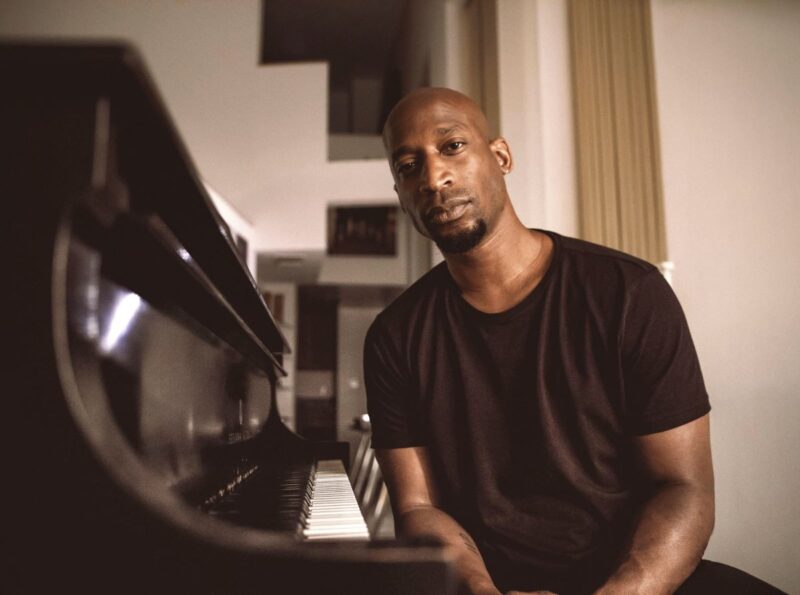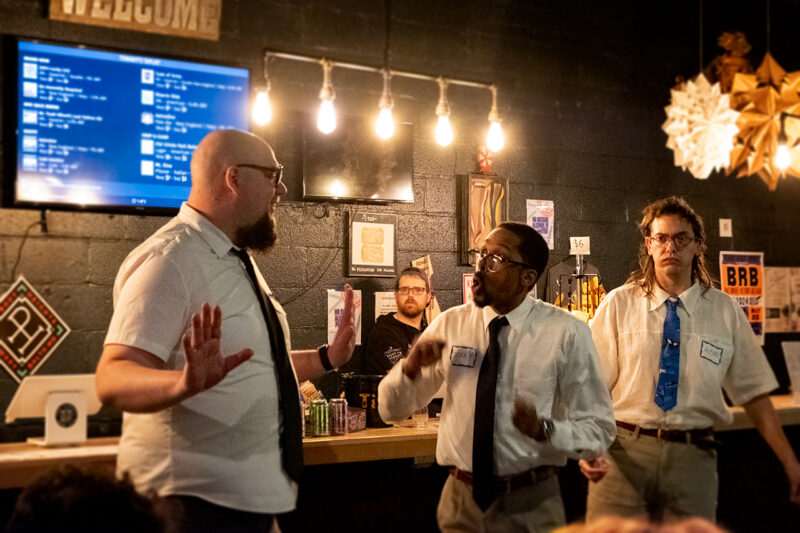A friend from New York, upon seeing blocks and blocks of boarded-up Baltimore for the first time, once said, “Wow. Your city is kinda like a haunted house… except there are whole haunted neighborhoods! Living here must be really creepy!”
I was thinking about that comment on the eerily empty nighttime walk to Clifton Mansion to see Safe Space, the crushingly dark comedy written by R. Eric Thomas and produced by Single Carrot Theatre, which runs through February 23. At the time, I didn’t even know that I was on my way to see a ghost story precisely about a hyper-local species of haunted house. I was only thinking about how strange, elusive, and relative the concept of a “Safe Space” is in Baltimore. I had just gotten back to town after nearly two months in Scandinavia, and found myself a bit unsettled by the process of easing back into the muscle memory of Baltimore—of glancing over my shoulder, of changing my posture to feel less visible as the sole person on empty blocks, of resigning myself to our reality of cracked sidewalks and out-of-service streetlights that might dead-end in a grass field without warning.
And so, on many levels, Single Carrot Theatre’s production feels a brand of site specificity that hits uncomfortably close to home. It is an absurd ghost story performed in the creepy basement of a weird mansion in a forgotten golf course in a neighborhood with plenty of haunted houses. Audience members wait on the first floor of the dilapidated house before being ushered down. By the stairwell, there’s a Baltimore Sun article from 1995 about how President Clinton’s AmeriCorps youth service program was going to restore the 1802 mansion, which was built as a home for Johns Hopkins (of university fame) and later served as a clubhouse for the golf course. One gets the impression that renovation project never quite finished. All in all, it’s a context that speaks to Ye Olde White Baltimore—Hopkins! Harford Road! Foundations! Golf Clubhouse!—or, more specifically, its spectacular decline. Single Carrot Theatre, now fully itinerant and devoted to site-specific works, probably couldn’t have found a better setting to pair with this particular script within the borders of Baltimore City.
